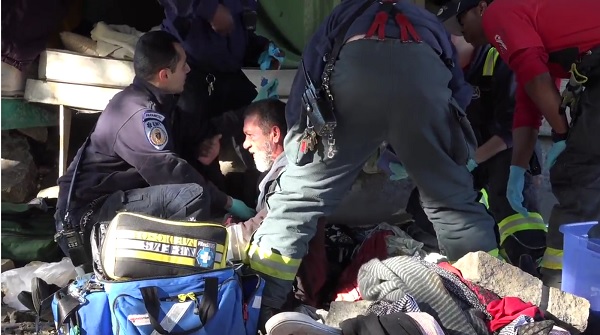Crime
New Opioid Settlement Could Bring $500 Million to Massachusetts

Massachusetts stands to receive more than $500 million over the next roughly 18 years as part of a massive settlement announced Wednesday that would end investigations and resolve thousands of lawsuits state and local government filed against three of the country’s largest opioid distributors and drugmaker Johnson & Johnson.
Attorney General Maura Healey, whose office was one of 14 that negotiated the $26 billion agreement with Johnson & Johnson and distributors Cardinal, McKesson and AmerisourceBergen, said the deal is another step in her work to hold accountable businesses and executives that recklessly promoted opioids in Massachusetts.
“I promised the people of Massachusetts that the opioid crisis would be a top priority, that we would hold the bad actors accountable, and that the billion-dollar companies who got rich off the suffering in our communities would pay,” she said. “This money will benefit every city and town in every part of our state. My team worked hard to make this happen, and we will continue to pursue justice for the people who were hurt and secure resources for prevention, treatment, and recovery.”
Massachusetts opioid overdose deaths rose by 5 percent to a new high in 2020, the first year-over-year increase in overdose deaths here in three years. The Department of Public Health reported last month that 2,035 people died of confirmed overdose deaths in Massachusetts last year and that predictive modeling suggests there will be another 66 to 70 deaths confirmed once additional cases are finalized.
States now have 30 days to sign onto the deal and municipalities within states that sign on have up to 150 days to join “to secure a critical mass of participating states and local governments. States and their local governments will receive maximum payments if each state and its local governments join together in support of the agreement,” Healey’s office said. The New York Times reported that an “unspecified number of states must sign on for the deal to proceed.”
Under the deal, the three drug distributors are to collectively pay up to $21 billion over 18 years and Johnson & Johnson is to pay up to $5 billion over nine years, with up to $3.7 billion coming in the first three years, according to the AG’s office.
The agreement would also result in court orders prohibiting Johnson & Johnson from selling opioids, lobbying on activities related to opioids or funding other groups that promote opioids for at least 10 years. Healey’s office said the distributors would be ordered by the court to establish a central and independent clearinghouse that can show state regulators and others “where drugs are going and how often, eliminating blind spots in the current systems used by distributors.”
State attorneys general had been looking into whether Johnson & Johnson “misled patients and doctors about the addictive nature of opioid drugs” and whether the three distributors “fulfilled their legal duty to refuse to ship opioids to pharmacies that submitted suspicious drug orders,” Healey’s office said.
Massachusetts could see more than $500 million if the agreement takes effect. State shares have been determined among states using a formula that takes into account the number of overdose deaths, the number of residents with substance use disorder, the number of opioids prescribed and the state’s population.
Two weeks ago, Healey and her counterparts in 14 other states agreed to resolve their lawsuits against OxyContin manufacturer Purdue Pharma as part of a deal in which Massachusetts is expected to get $90 million to combat the ongoing opioid crisis.
The money from both settlements is expected to be deposited into the Opioid Recovery and Remediation Trust Fund that was created in the fiscal year 2020 closeout budget “to mitigate the impacts of the opioid epidemic,” by expanding access to opioid use disorder prevention, intervention, and recovery options.
Money in that fund “shall supplement and shall not replace existing local, state, private or federal funding” and will be distributed by the state’s health and human services secretary working with the Opioid Recovery and Remediation Trust Fund Advisory Council.
That’s a good first step, according to budget and health experts at The Pew Charitable Trusts.
“While the settlements will present a valuable opportunity, history provides a lesson about the importance of adopting safeguards to preserve the money for its intended use before it arrives,” Jeff Chapman and Beth Connolly wrote in a May op-ed. “States received billions of dollars annually as a result of the historic settlement with tobacco companies in 1998. But in the absence of strong requirements that the funds be spent on tobacco use prevention and cessation programs, as originally envisioned, only a small percentage has been used for these purposes.”
The Pew op-ed recommended that policymakers develop a multi-year budget to sustainably allocate the one-time settlement funds and to develop a public reporting and tracking system “to help ensure that settlement money is being used to enhance rather than replace existing funding.”
“If managed effectively, the settlement payouts could prove to be a big win in the fight to mitigate the opioid overdose crisis. But for that to happen, state and local policymakers need to take advantage of the new money by adopting a framework to invest in evidence-based programs, follow a long-range budget plan and frequently measure spending and results,” the op-ed concluded.







You must be logged in to post a comment Login